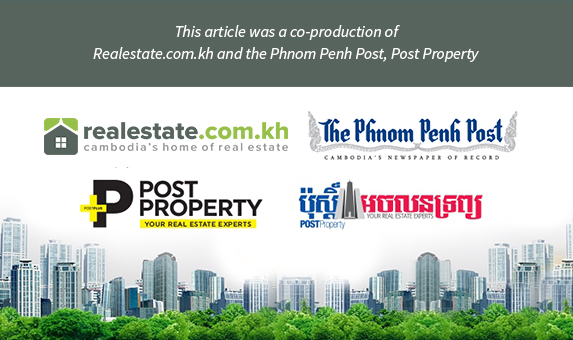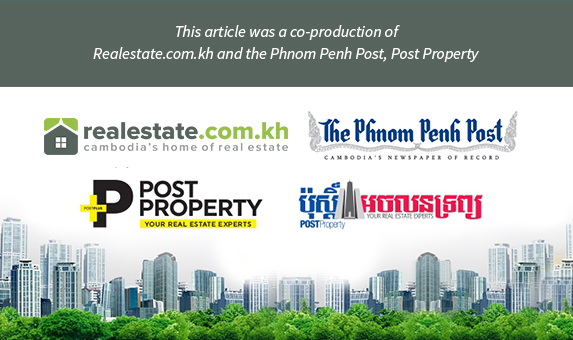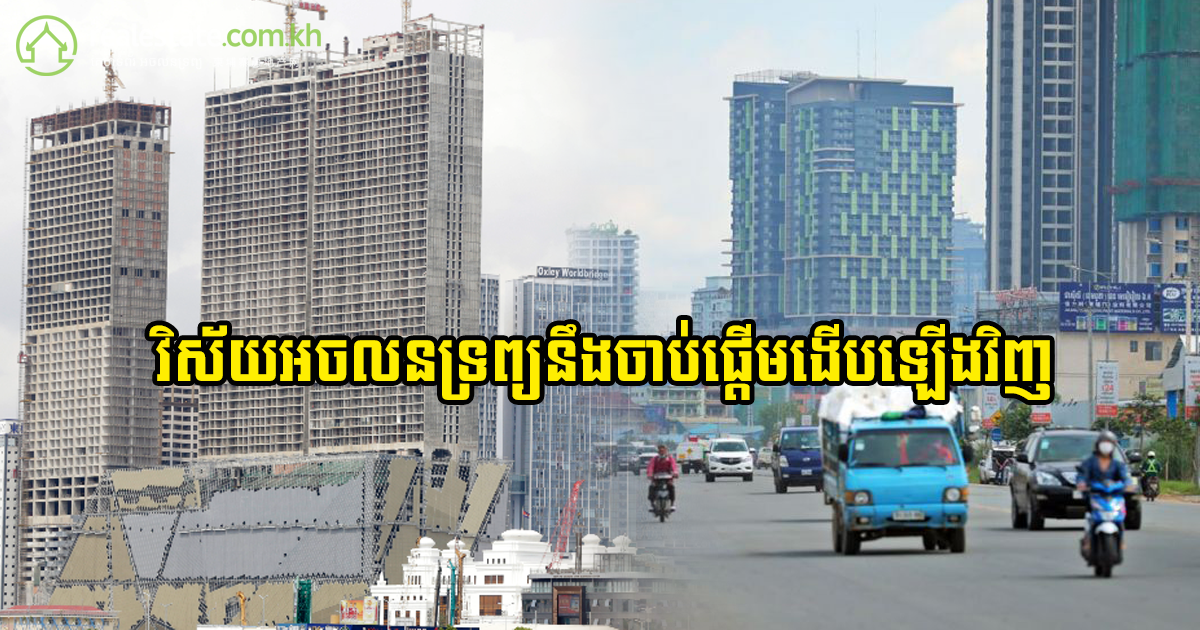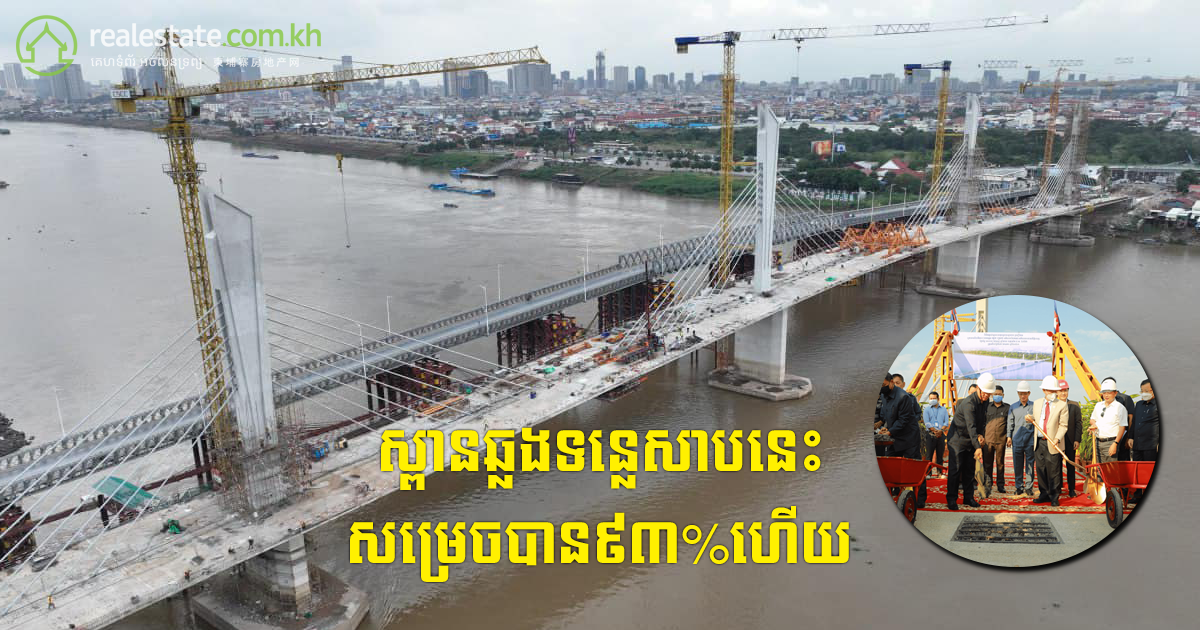With the recent political upheaval that began with the severe beating of two Cambodia National Rescue Party representatives on October 26, last Friday’s arrest warrant issued for Sam Rainsy concerning a defamation lawsuit stemming from 2008, the subsequent stripping of his lawmaker status by the National Assembly on Monday – a vote which was boycotted by opposition lawmakers – the heated politics between the ruling CPP party and the CNRP has led economists to argue that further political instability will scare away foreign direct investors into the property market much like it did during the last election cycle, providing the situation further deteriorates.
 Seng Bunna, CEO of Bunna Realty Group, told Post Property that such political turmoil would generally spurn investors temporarily, slowing FDI, as well as delay ongoing projects causing investors to second-guess their decisions while they wait and watch to see how the situation plays out. Cautioning the dependence the Kingdom has on foreign investment, Bunna added that “[these events] demand vigorous discussion between politicians and they have to specifically address the need for political stability for the economy to develop because Cambodian politics and [the] economy are still not widely apart”.
Seng Bunna, CEO of Bunna Realty Group, told Post Property that such political turmoil would generally spurn investors temporarily, slowing FDI, as well as delay ongoing projects causing investors to second-guess their decisions while they wait and watch to see how the situation plays out. Cautioning the dependence the Kingdom has on foreign investment, Bunna added that “[these events] demand vigorous discussion between politicians and they have to specifically address the need for political stability for the economy to develop because Cambodian politics and [the] economy are still not widely apart”.
Ho Vandy, advisor to the Cambodian Chamber of Commerce, echoed the fact that the potential for Cambodian economic growth was always viewed in the context of relative political stability and that a lack of it could freeze the flow of FDI. Also, Vandy, a former co-chairman of the Private and Public Sector Working Group, said that with rising political tensions, the tourism sector could also be placed at risk.
Whenever the political situation heightens, it not only shakes local and foreign investor confidence, but potential tourists take notice, he added.
In a deteriorating political environment, Vandy said that investors could face three options: shore up their investment to secure their current assets, maintain their current stance, or retreat. The latter, he explained, could be possible if property investors liquefy their capital by taking mortgages on their property and simply pull out due to increased uncertainty.
However, while he sees no sign of this presently occurring, he suspects that tourism, which is a quick barometer of outside confidence, has already been negatively impacted.
“We request politicians to calm the situation because this political turmoil disturbed much income, FDI and overall tourism in Cambodia,” he said, noting that the slowdown in the increase of tourism growth compared to last year – due to unrelated factors – needs to be addressed.
“Currently we are conducting a study with many economists from related ministries in order to study these complications,” he said.
Ann Thida, vice president of CBRE Cambodia, said that while she has not seen “reactions from anxious investors, what I see is that the investors’ sentiment is [primarily] affecting the international market perception negatively.”
“In whatever way, I think they worry, but so far I have not received any response concerning this problem,” she added.
Srey Chanthy, an independent economic analyst, said that the current state of affairs could take six months to blow over before investor confidence is renewed. In the present context, she explained that investor activities can “stagnate” causing a pause in “projects and signing of contracts because [investors] are still observing.”
Besides political stability, he noted that the most important thing for FDI is economic growth, macroeconomic stability, “government policy and the rule of law”.
Chailin Sear, CEO of Chailin Sear real estate, did not believe that the present situation was of consequence, noting that any appeared slowdown is chalked up to the mix of national holidays and the rainy season, when construction typically slows.
“If we look into the political situation, I do not think it affects investors or projects,” he said, adding the turmoil has not even made it onto foreign investors’ radar screens.
Investment figures from ACLEDA Bank also seem to suggest that at least for now, investment has remained unchanged. In Channy, CEO of ACLEDA, was unfazed by the current rumblings, saying that investors have always operated on the principle of long-term investment strategies. According to the bank’s figures, $2.7 billion is scheduled to come into Cambodia through ACLEDA by the end of this year, of which $2.6 billion had already arrived as of October.
Channy tried to underscore the notion that a rather healthy dose of confidence comes from regional stability, saying that, “ASEAN is the most peaceful and secure region with the lowest risk for investment, while regions in Europe and the Middle East are having many troubles.”
In a time of uncertainty in other global markets, he said this was the time for Cambodia to shore up its stance as a “favourable investment atmosphere in order to attract more investors.”
Siv Meng, Phnom Penh Post, Post Property.

 Seng Bunna, CEO of Bunna Realty Group, told Post Property that such political turmoil would generally spurn investors temporarily, slowing FDI, as well as delay ongoing projects causing investors to second-guess their decisions while they wait and watch to see how the situation plays out. Cautioning the dependence the Kingdom has on foreign investment, Bunna added that “[these events] demand vigorous discussion between politicians and they have to specifically address the need for political stability for the economy to develop because Cambodian politics and [the] economy are still not widely apart”.
Ho Vandy, advisor to the Cambodian Chamber of Commerce, echoed the fact that the potential for Cambodian economic growth was always viewed in the context of relative political stability and that a lack of it could freeze the flow of FDI. Also, Vandy, a former co-chairman of the Private and Public Sector Working Group, said that with rising political tensions, the tourism sector could also be placed at risk.
Whenever the political situation heightens, it not only shakes local and foreign investor confidence, but potential tourists take notice, he added.
In a deteriorating political environment, Vandy said that investors could face three options: shore up their investment to secure their current assets, maintain their current stance, or retreat. The latter, he explained, could be possible if property investors liquefy their capital by taking mortgages on their property and simply pull out due to increased uncertainty.
However, while he sees no sign of this presently occurring, he suspects that tourism, which is a quick barometer of outside confidence, has already been negatively impacted.
“We request politicians to calm the situation because this political turmoil disturbed much income, FDI and overall tourism in Cambodia,” he said, noting that the slowdown in the increase of tourism growth compared to last year – due to unrelated factors – needs to be addressed.
“Currently we are conducting a study with many economists from related ministries in order to study these complications,” he said.
Ann Thida, vice president of CBRE Cambodia, said that while she has not seen “reactions from anxious investors, what I see is that the investors’ sentiment is [primarily] affecting the international market perception negatively.”
“In whatever way, I think they worry, but so far I have not received any response concerning this problem,” she added.
Srey Chanthy, an independent economic analyst, said that the current state of affairs could take six months to blow over before investor confidence is renewed. In the present context, she explained that investor activities can “stagnate” causing a pause in “projects and signing of contracts because [investors] are still observing.”
Besides political stability, he noted that the most important thing for FDI is economic growth, macroeconomic stability, “government policy and the rule of law”.
Chailin Sear, CEO of Chailin Sear real estate, did not believe that the present situation was of consequence, noting that any appeared slowdown is chalked up to the mix of national holidays and the rainy season, when construction typically slows.
“If we look into the political situation, I do not think it affects investors or projects,” he said, adding the turmoil has not even made it onto foreign investors’ radar screens.
Investment figures from ACLEDA Bank also seem to suggest that at least for now, investment has remained unchanged. In Channy, CEO of ACLEDA, was unfazed by the current rumblings, saying that investors have always operated on the principle of long-term investment strategies. According to the bank’s figures, $2.7 billion is scheduled to come into Cambodia through ACLEDA by the end of this year, of which $2.6 billion had already arrived as of October.
Channy tried to underscore the notion that a rather healthy dose of confidence comes from regional stability, saying that, “ASEAN is the most peaceful and secure region with the lowest risk for investment, while regions in Europe and the Middle East are having many troubles.”
In a time of uncertainty in other global markets, he said this was the time for Cambodia to shore up its stance as a “favourable investment atmosphere in order to attract more investors.”
Siv Meng, Phnom Penh Post, Post Property.
Seng Bunna, CEO of Bunna Realty Group, told Post Property that such political turmoil would generally spurn investors temporarily, slowing FDI, as well as delay ongoing projects causing investors to second-guess their decisions while they wait and watch to see how the situation plays out. Cautioning the dependence the Kingdom has on foreign investment, Bunna added that “[these events] demand vigorous discussion between politicians and they have to specifically address the need for political stability for the economy to develop because Cambodian politics and [the] economy are still not widely apart”.
Ho Vandy, advisor to the Cambodian Chamber of Commerce, echoed the fact that the potential for Cambodian economic growth was always viewed in the context of relative political stability and that a lack of it could freeze the flow of FDI. Also, Vandy, a former co-chairman of the Private and Public Sector Working Group, said that with rising political tensions, the tourism sector could also be placed at risk.
Whenever the political situation heightens, it not only shakes local and foreign investor confidence, but potential tourists take notice, he added.
In a deteriorating political environment, Vandy said that investors could face three options: shore up their investment to secure their current assets, maintain their current stance, or retreat. The latter, he explained, could be possible if property investors liquefy their capital by taking mortgages on their property and simply pull out due to increased uncertainty.
However, while he sees no sign of this presently occurring, he suspects that tourism, which is a quick barometer of outside confidence, has already been negatively impacted.
“We request politicians to calm the situation because this political turmoil disturbed much income, FDI and overall tourism in Cambodia,” he said, noting that the slowdown in the increase of tourism growth compared to last year – due to unrelated factors – needs to be addressed.
“Currently we are conducting a study with many economists from related ministries in order to study these complications,” he said.
Ann Thida, vice president of CBRE Cambodia, said that while she has not seen “reactions from anxious investors, what I see is that the investors’ sentiment is [primarily] affecting the international market perception negatively.”
“In whatever way, I think they worry, but so far I have not received any response concerning this problem,” she added.
Srey Chanthy, an independent economic analyst, said that the current state of affairs could take six months to blow over before investor confidence is renewed. In the present context, she explained that investor activities can “stagnate” causing a pause in “projects and signing of contracts because [investors] are still observing.”
Besides political stability, he noted that the most important thing for FDI is economic growth, macroeconomic stability, “government policy and the rule of law”.
Chailin Sear, CEO of Chailin Sear real estate, did not believe that the present situation was of consequence, noting that any appeared slowdown is chalked up to the mix of national holidays and the rainy season, when construction typically slows.
“If we look into the political situation, I do not think it affects investors or projects,” he said, adding the turmoil has not even made it onto foreign investors’ radar screens.
Investment figures from ACLEDA Bank also seem to suggest that at least for now, investment has remained unchanged. In Channy, CEO of ACLEDA, was unfazed by the current rumblings, saying that investors have always operated on the principle of long-term investment strategies. According to the bank’s figures, $2.7 billion is scheduled to come into Cambodia through ACLEDA by the end of this year, of which $2.6 billion had already arrived as of October.
Channy tried to underscore the notion that a rather healthy dose of confidence comes from regional stability, saying that, “ASEAN is the most peaceful and secure region with the lowest risk for investment, while regions in Europe and the Middle East are having many troubles.”
In a time of uncertainty in other global markets, he said this was the time for Cambodia to shore up its stance as a “favourable investment atmosphere in order to attract more investors.”
Siv Meng, Phnom Penh Post, Post Property.





Comments